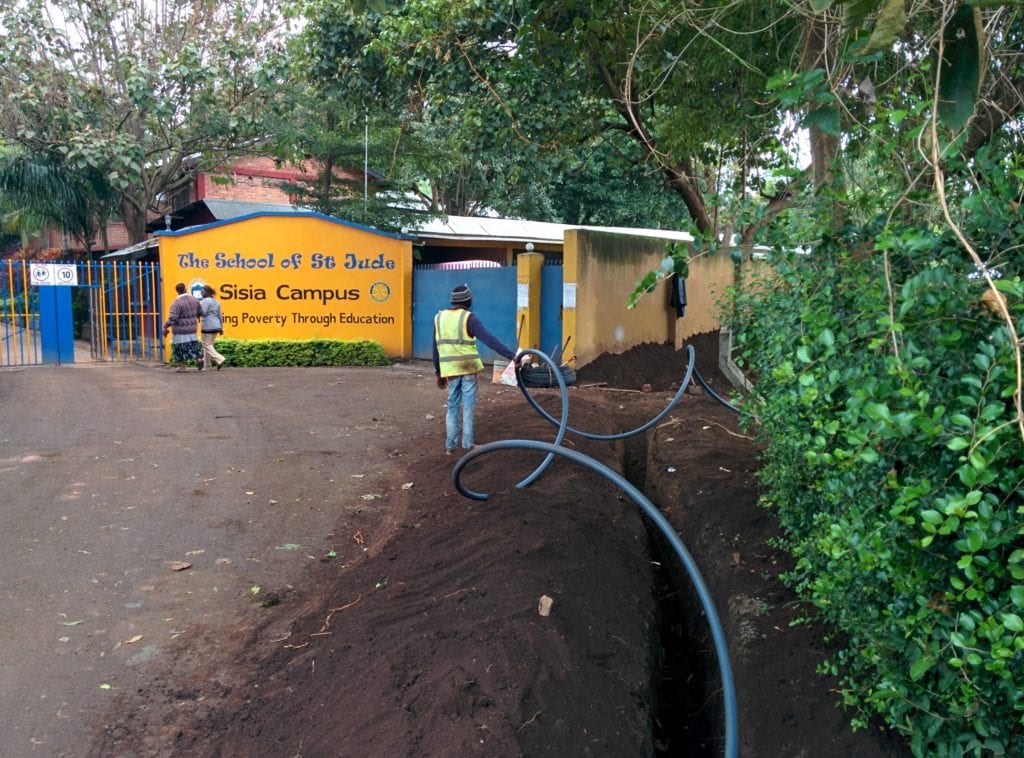Fourteen gifted St Jude’s students proved their skills at last month’s national Union Sports Secondary Schools competition, helping the Arusha and Manyara (NW) zone finish third.
The 135-strong Arusha and Manyara team took first place in boys’ athletics, and second in girls’ basketball and girls’ athletics. They placed third overall, as well as third in girls’ volleyball and drama/ngoma. The team also received a special award for cleanliness and behaviour during the competition, held in Mwanza, Tanzania’s second largest city.
St Jude’s Form 6 student Denis was particularly outstanding, winning both triple jump and long jump. He qualified to represent Tanzania at the East African secondary schools sports’ competitions (FIASA), expected to be held in Rwanda in August.
The competition, which is known by its Kiswahili acronym UMISSETA, aims to identify the best budding sports talents in Tanzania.
St Jude’s PE teacher Ali Rashid Juma participated as Meru District UMISSETA Coordinator, and music teacher Vencheslao Mgani helped as a trainer for the drama/ngoma and singing zone group.
Firmin A. Kiwale, St Jude’s Religion and Vocation Skills Head of Department, said the final 14 representatives emerged from the 56 St Jude’s students who represented the district team.
“They’ve gone from the sub-zonal, to the district, to the regional competition,” he said, explaining the hard work their group had committed to the national competition.
“We are an academic institution, but we encourage (the students’) other talents. We try to make sure there is a balance. Generally, all who went were happy with the organization and thankful to the school and anyone who, in one way or another, supported them in attaining that level.”
Congratulations to all the talented students involved, and we wish Denis all the best in his pursuit of success at FIASA.
See how else our students are excelling outside the St Jude's gates.
Tanzania’s next generation of doctors, aircraft engineers and artists returned to St Jude’s with renewed confidence following a week at one of Africa’s most prestigious universities.
Five St Jude’s Form 6 students attended the JuniorTukkie Empowerment Week at South Africa’s University of Pretoria and described the experience as life-changing.
“Now I can say what I want to be, and be confident in that, because of this program,” said Sifuni, who traveled alongside fellow St Jude’s students Godson, Leah, Maurine and Winrose.
“With gratitude and all my heart, I’d like to thank my school for giving me this opportunity to attend this wonderful week, with wonderful sessions. I’ve learnt a lot from it.”
The JuniorTukkie program comprised motivational sessions, e-learning workshops, a social responsibility session, career guidance and adventure workshops.
It was established to assist Form 4, 5 and 6 (Grade 10, 11 and 12) pupils from across Africa to approach their final years at high school with clarity and confidence.
It certainly seems to have worked for our students.
“I’ve loved airplanes since I was young and I love flying”, said Winrose, who is more confident than ever she can fulfill her lifelong dream of becoming an aircraft engineer.
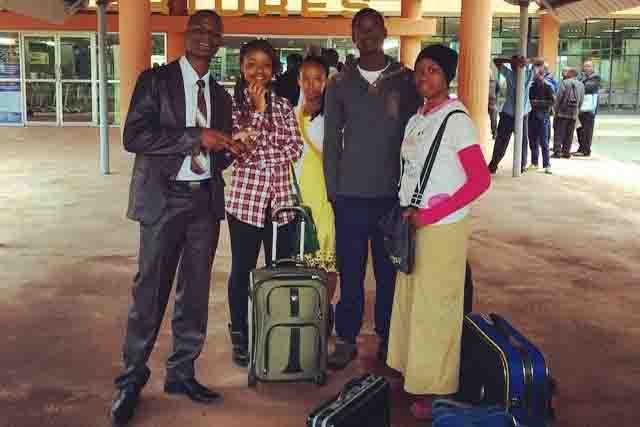
As a future linguist and lawyer, Leah said she “wants to fight for people’s rights,” and that the program also helped her discover a clear career path.
A medical future awaits Sifuni and Godson, with Sifuni certain he is ready for the many years of preparation it takes to become a doctor, and Godson keen on becoming a cardiac surgeon.
Godson said he planned to share his experience with others who were not able to attend, to “tell them more of the experience I got here and to emphasize the importance of knowing their career path”.
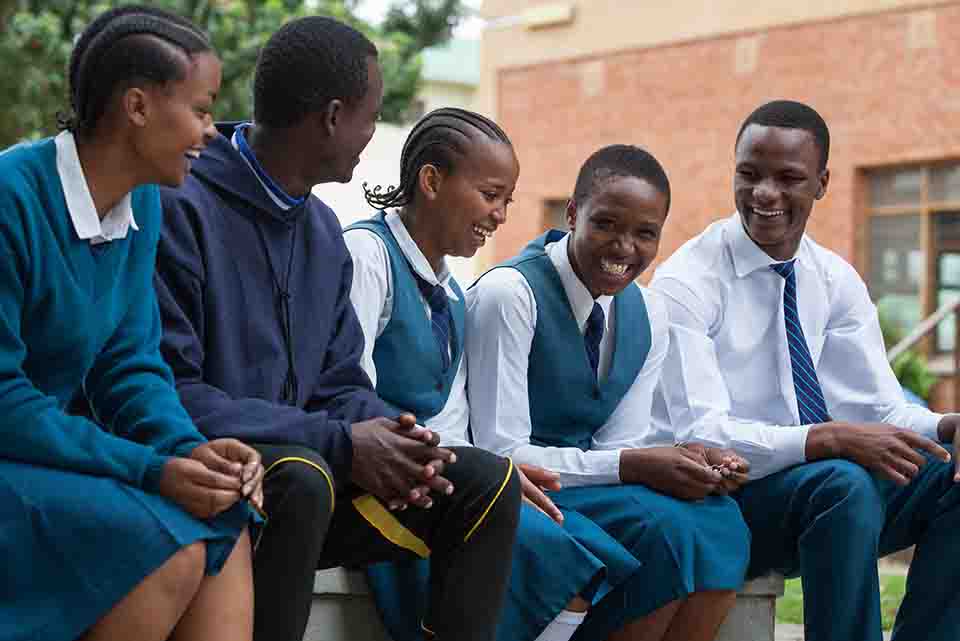
Maureen, who has a busy future ahead as a film producer, animator and actress, said she believed JuniorTukkie achieved its aim of helping youths with what they want to be.
“It has meant a lot to me,” Maureen said. “I’ve never been to South Africa, so this is a great opportunity to come here, meet different people and learn about a different culture from mine.”
“I’ve learnt how to be confident in myself and how to stand up and speak in front of others. It has taught me a lot – to go head-on in what I want to be, which is to be a director of movies. I would like to act in some of them, and later establish my own company to produce movies.”
Donations to our School Excursion Fund covered the airfares for students and accompanying staff members. We are grateful to the University of Pretoria for generously covering all other costs.
To make a donation click here.
A joyous ceremony revealed the hard work and impressive personal growth of 40 former Form 4 students who have spent the past five months as dedicated volunteer employees of St Jude’s.
The celebration provided insight into the new Giving Back course, where students helped in many areas of the school, from the kitchen to boarding and teaching to business office roles.
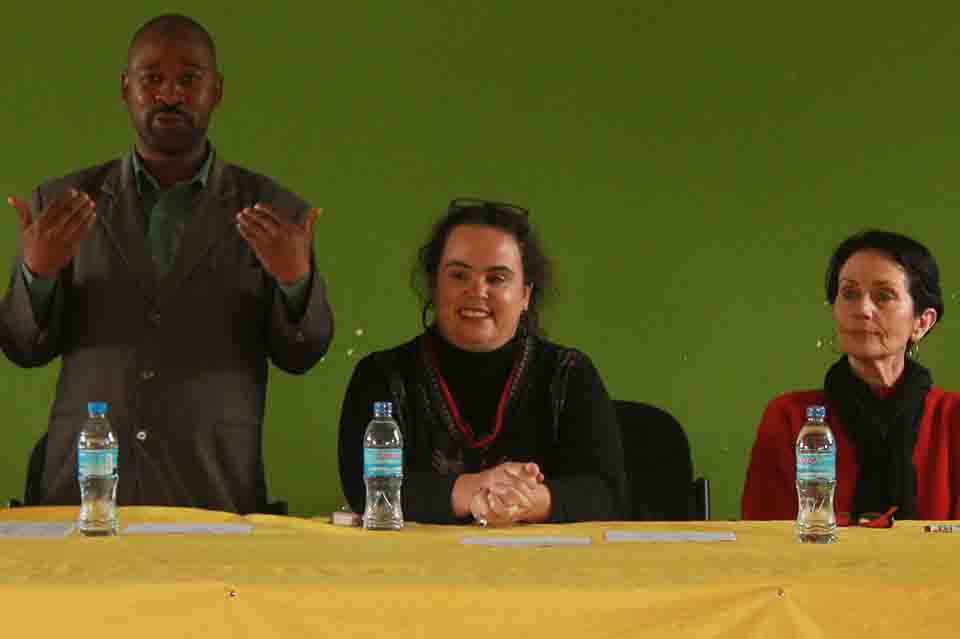
“When we started this program, most of us just thought of the benefits of the certification. Now we thank you so much for giving us this opportunity. Some of us were working in areas which we had no idea about, but now we are almost specialists in those areas,” student participant Ezekiel Haji said.
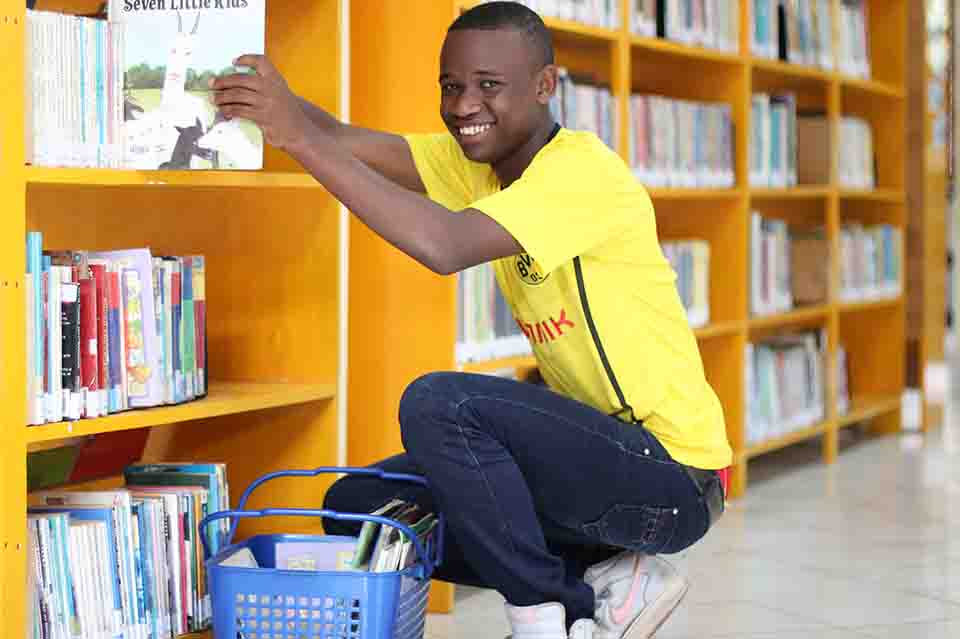
Upper primary headmaster Peter Manjalla said the Giving Back program was proposed to Form 4 students as a “bridging” opportunity for their break between completing Form 4 and progressing to Form 5.
“We asked them three things: what would they like to do, how long are they are available and to write notes (about their experience),” Peter explained.
“This program helped the students to learn how to work. Not just as a student at St Jude’s, but as part of the team of workers at St Jude’s. They met many challenges, such as how to behave professionally and how to be a model to their young brothers and sisters.
“We are still looking at our mission of developing the future leaders of this country. If they can’t practice their leadership now, how can we be sure they can do it for their community? So we have to give them the opportunity.”
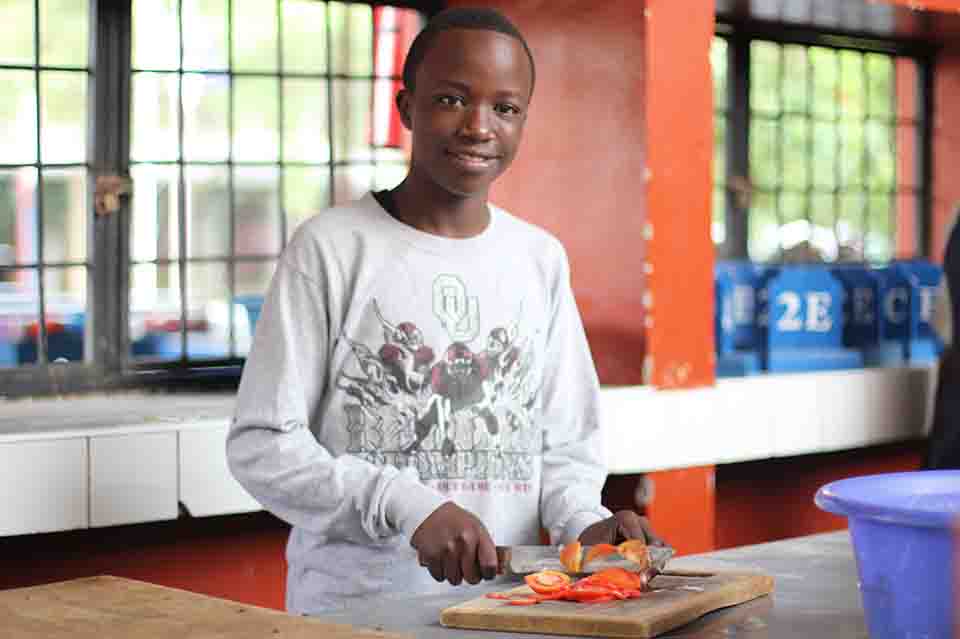
School founder Gemma Sisia expressed her pride and thanked students for their months of dedication to the school.
“You know, it’s very easy to learn maths and science and everything in the classrooms, but by volunteering, I think you’ll agree, you learn a lot of skills you don’t normally learn in the classroom,” Gemma said.
“I also want to thank you for being the pioneers (of the program). As you have been such wonderful pioneers, we will be doing the program again next year.”
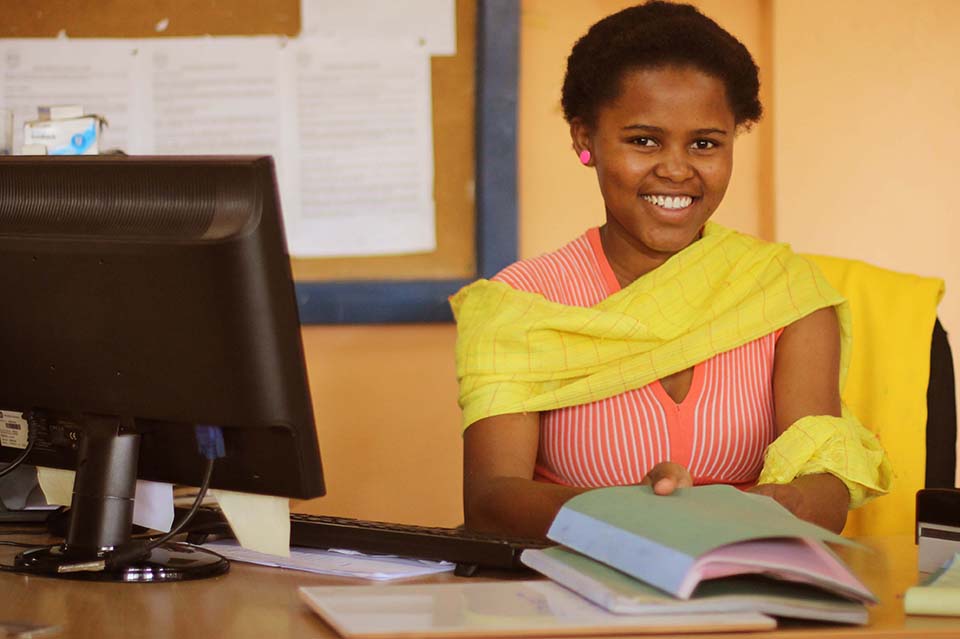
Students who took up placements across the school shared their many positive experiences.
Olsen helped teach science in upper primary. “We had a good experience with the kids. I enjoyed teaching Standard 7 actually, they were very good. They wanted to learn more, so all of us gave what we had,” he explained. “There’s a very good feeling that comes from being a teacher.”
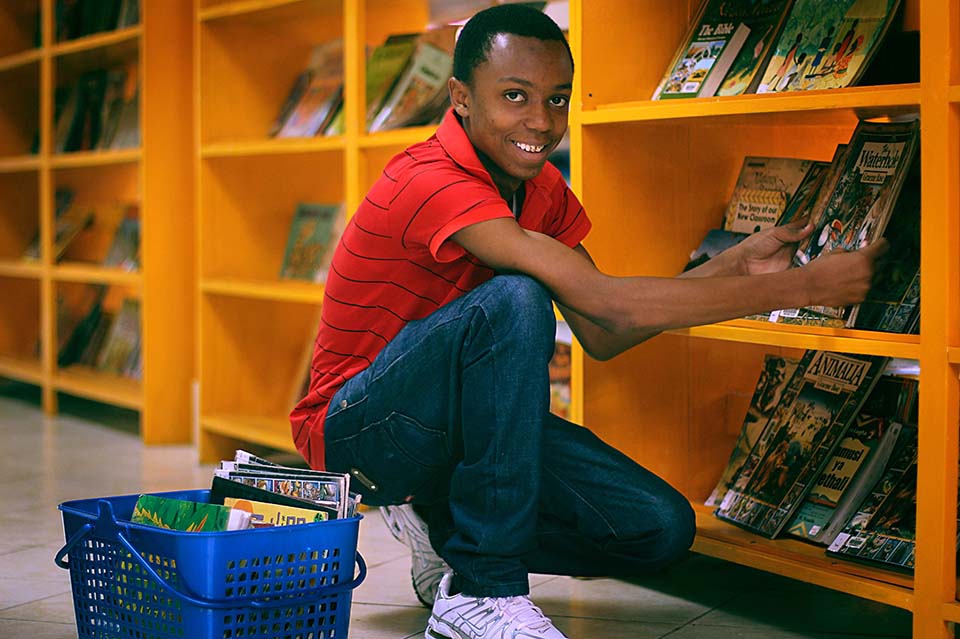
Two students, Simon and Irene, were stationed in the school Visitors Office and also had positive feedback.
“I worked with all different kinds of people, and after meeting some of these people I was really inspired with my career to be a university professor,” Irene said.
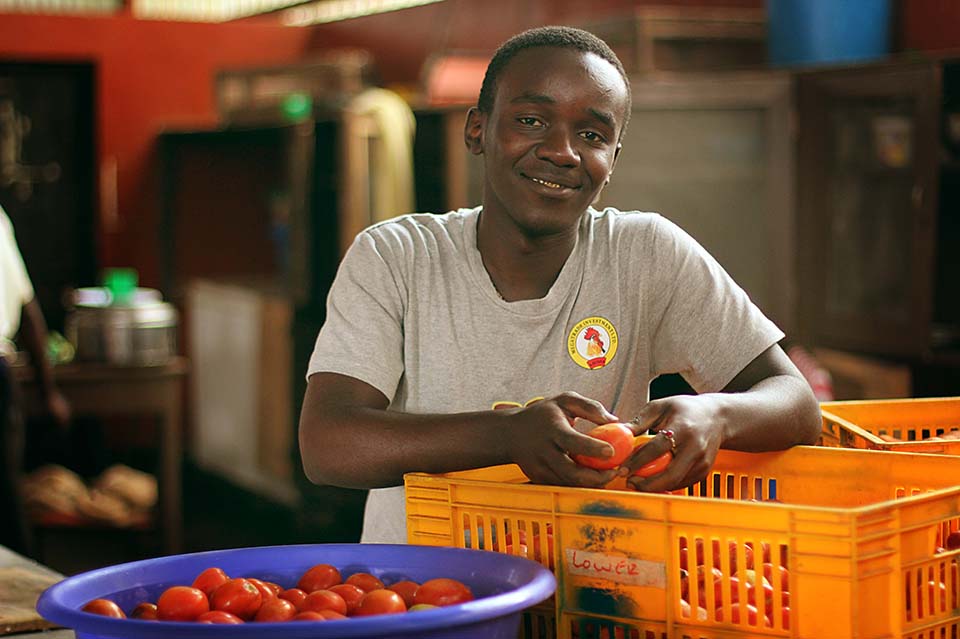
“We are so grateful to have had this chance, to experience the visitors team. We have increased our skills of having a sense of humour, of having confidence, and being able to handle lots of visitors and being responsible with time,” Simon said.
The new Form 5’s returned to school last week, and we look forward to seeing what more they will achieve.
To find out more about sponsoring one of our generous students click here.
There had to be something special happening at St Jude’s to lure our very first teacher back.
Australian volunteer Angela Bailey fondly remembers her first time living in the Arusha and volunteering at the school, so the chance to offer further support to some of the very same students she taught back in those early days was too good to pass up.
“It’s amazing, and I feel very privileged to be back here working with these kids, or young adults I should say, because they are amazing students. It has been fantastic walking through the grounds of the secondary school, getting big hugs and cool handshakes,” she said.
“I’m certainly very excited to be working with them and they seem to be very excited about it too.”
Thirteen years ago, the Sydney resident helped establish the St Jude’s, along with Gemma Sisia and Kim Saville, who have both remained at the school.
Angela became the first teacher at St Jude’s and spent three years with us, before spending the last decade working on various projects in Australia and Vietnam.
She had been back to the school to visit during that decade, but to be working here again is something rather special.
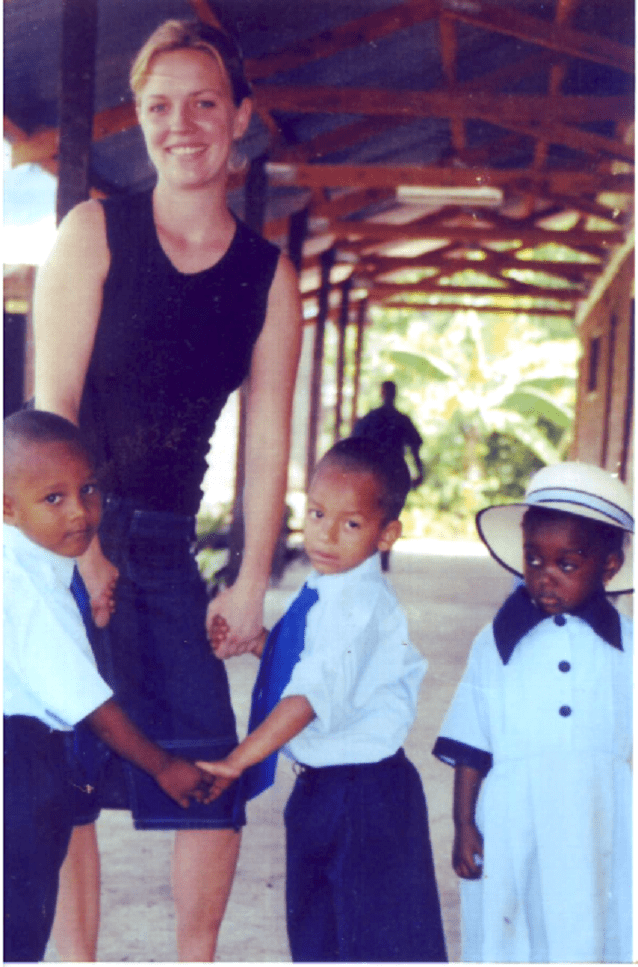
“The last time I was here was for the 10 years (anniversary), and before that it had been five years. That time I remember I was just walking around in tears, it was so emotional I could hardly even talk,” she said.
“There’s now three campuses when there was only one… more buses. More students, obviously. I notice the higher-educated teachers, through conversation with them. Moshono (village) has completely and utterly changed – there’s so many shops now, and a nightclub, a lot more people, a lot more traffic, lots of people moving to Moshono from town (Arusha)…”
Almost three years after her last visit, Angela heard murmurings of our community service and tertiary teams and knew it was the reason she would return.
She arrived at St Jude’s in early April to oversee the teams (pictured below), as part of the Beyond St Jude’s program.
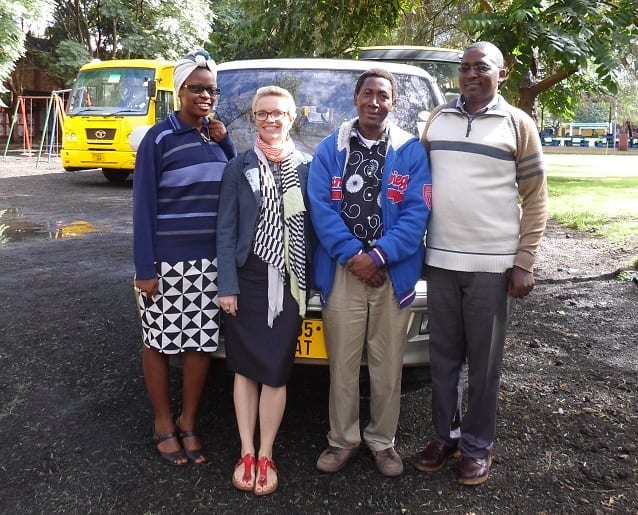
Her responsibility is far from a walk in the park, with 59 of the 61 graduating students in the program volunteering to spend a year as teachers in Government-run schools before their university education begins. Angela said the hard work her excellent team had already put in was a great start.
“Gemma and I joke around - she has literally offered me so many jobs to come back over the years – and this, for me, was it. I am so passionate about the community service and I think it is such an amazing way for these kids to give back,” she said.
“There’s an opportunity to make even more of a difference here, as this education is going to spread even further, into the government schools, which I know are seriously lacking. This is why I’m so excited and passionate about this role in particular.”
Throughout the following two years she plans to spend here, Angela looks forward to seeing the success of the Beyond St Jude’s program and all the students involved.
“We’ll be giving them packages, to go out, so depending on the subjects they’re teaching they’ll have textbooks to take with them, resources, chalk, and everything they would need,” she explained.
“I hope we have a really good start on both the community service project and the tertiary. I’m hoping that by the time I leave it’s running well (of its own accord). We’re going to learn a lot in the first couple of years.”
Professional development of our teachers is very important to us and we are always looking for ways for them to learn new teaching methodologies or resources in their classes.
This month, a group of United States teachers volunteered their time to come to our school to share their knowledge and expertise with our Tanzanian teachers. Most of them come from Louisville Collegiate School except for two, who teach at other schools and institutions and all had to apply to be part of it. Collegiate and St Jude’s are developing a partnership and it’s the second year that the program has been running at our school. It proved to be a big success.
Each of the American teachers teamed up with one of our Tanzanian teachers for two weeks, to do team teaching, planning and delivering lessons from the NECTA curriculum together. Some took a biology class together while others took technology, English and various subjects. Our teachers were enthusiastic to learn from them about how to improve their teaching and learning skills and were able to absorb the information more fully as the American teachers were by their side and in the classes with them.
James Calleroz White, who is the Head of the Louisville Collegiate School, visited classes and held a series of conversations about teaching, learning and leading with the leaders across the campuses.
“We’re very happy with how the exchange program worked and we found with an extra teacher, you got a better lesson as the student was able to learn something that had much better detail because of the good preparation and cooperation between the two teams,” said St Jude’s Upper Primary School Headmaster, Peter Manjalla. “Our upper, lower and secondary primary school leaders have now decided that we’re jointly going to look at ways to improve maths results and we’re excited about further looking at how to mprove learning and teaching so as to benefit our students.”
As well as in the classroom, the US teachers set up a ‘club’ with the Standard 7 students so they could do fun yet enriching activities with them. They included science demonstrations, vocabulary games, outdoor running games and a range of other exercises.
The American teachers also learnt a lot from our teachers as well about including more designated reading times for students and they gave them an overview about Tanzania which they could share with students and colleagues back at home.
In a country where a stable source of electricity is no guarantee, it should come as no surprise that the Internet infrastructure in Tanzania is behind most of the world. Internet connectivity in Tanzania has come a long way in the last decade, with both mobile and hard line access expanding exponentially across the country, but the rollout has been slow and the coverage within major cities is limited.
The Internet is cripplingly expensive for most businesses, let alone individuals, as monthly charges for a broadband connection can run into the thousands of US dollars. This not only means that the country is falling behind in the technical revolution, but the education system within the country suffers as well. Primary and secondary students in government schools would be lucky to have stable access to electricity and working computers, let alone the Internet.
It is within this challenging context that we here at The School of St Jude are attempting to provide our students with an education to prepare them for a digital future. It is an ongoing challenge, trying to balance the students’ need for high quality ICT facilities while ensuring our donors and sponsors with the absolute best use of their money.
For many years the school has relied on an expensive, slow and unreliable ‘Radio’ connection to receive their Internet. With recent upgrades in Arusha and a reduction in pricing across the country, we are now able to take advantage of the new fibre optic lines, which have recently been connected across the city.
As many of you will know, fibre optics are the latest in Internet connectivity infrastructure and provide fast, stable and consistent Internet on demand. A more reliable and fast Internet opens up a whole world of possibilities to the students that simply weren’t available previously. These include online learning, video presentations, interactive collaboration and an infinite number of ways which we can incorporate the World Wide Web into the classroom.
Large projects like this require extensive planning which we have had in motion for almost a year. There are contracts and lawyers and engineers and endless layers of sales people to wade through before the project can begin. The most important step, naturally, was haggling over price. All prices are negotiable in Tanzania, after all! Following a significant amount of wheeling and dealing, we managed to save the school thousands of donated dollars, and look forward to providing everyone at the school, fast and efficient internet access.
After much planning, testing and installation, St Jude’s has now upgraded the Internet connection on both campuses to a fibre optic connection. This connection will bring the school into the 21st Century and will support the development of our students, by assisting them in becoming technologically aware and preparing them for an interconnected, digital world.
Interested in joining our volunteering team as an IT Manager? Check out our jobs page http://www.schoolofstjude.org/join-us/employment.html
